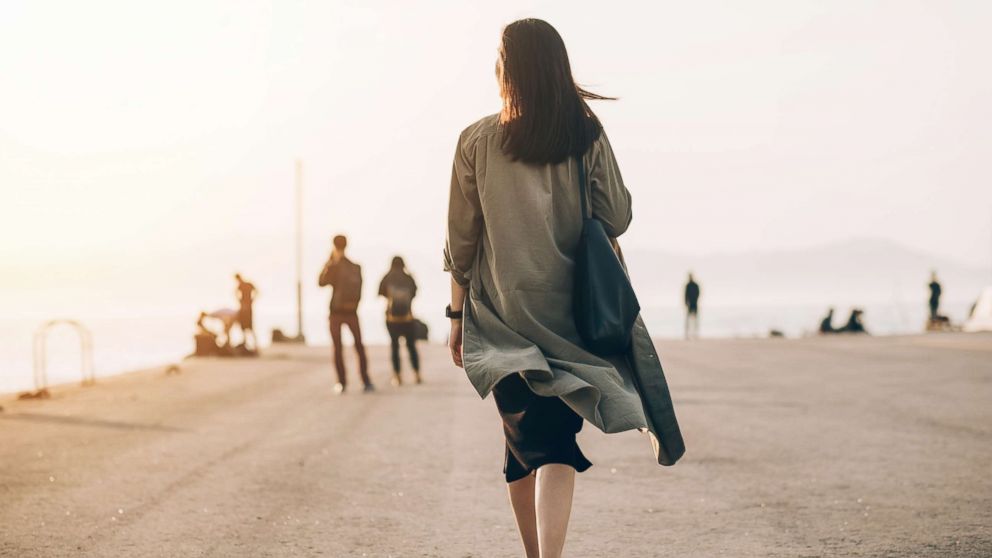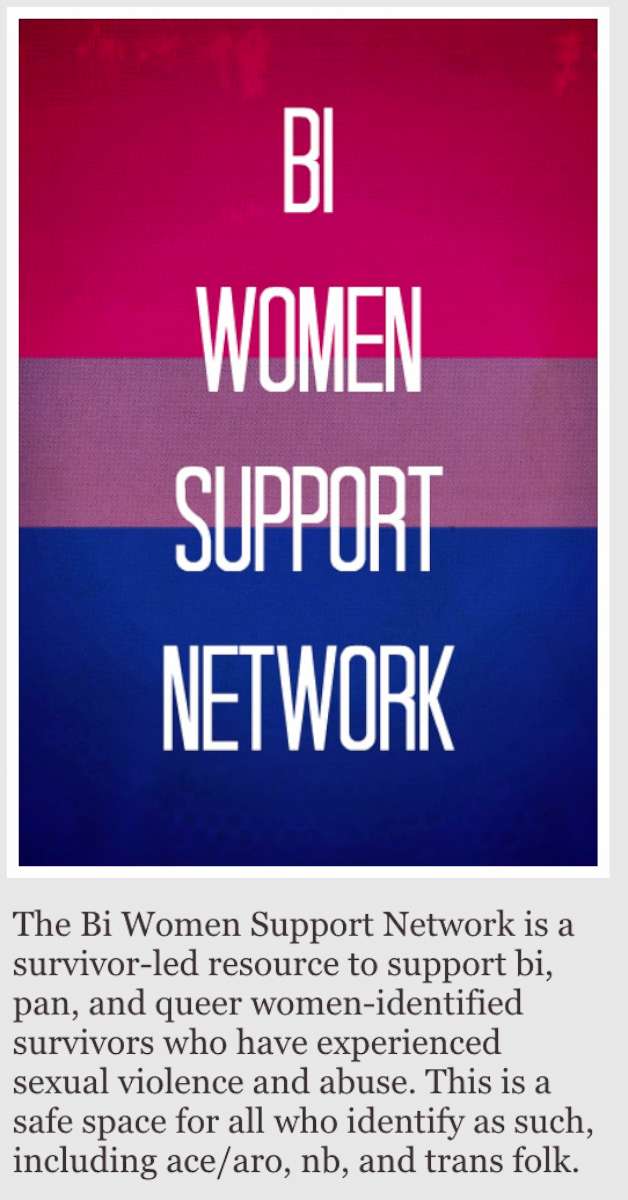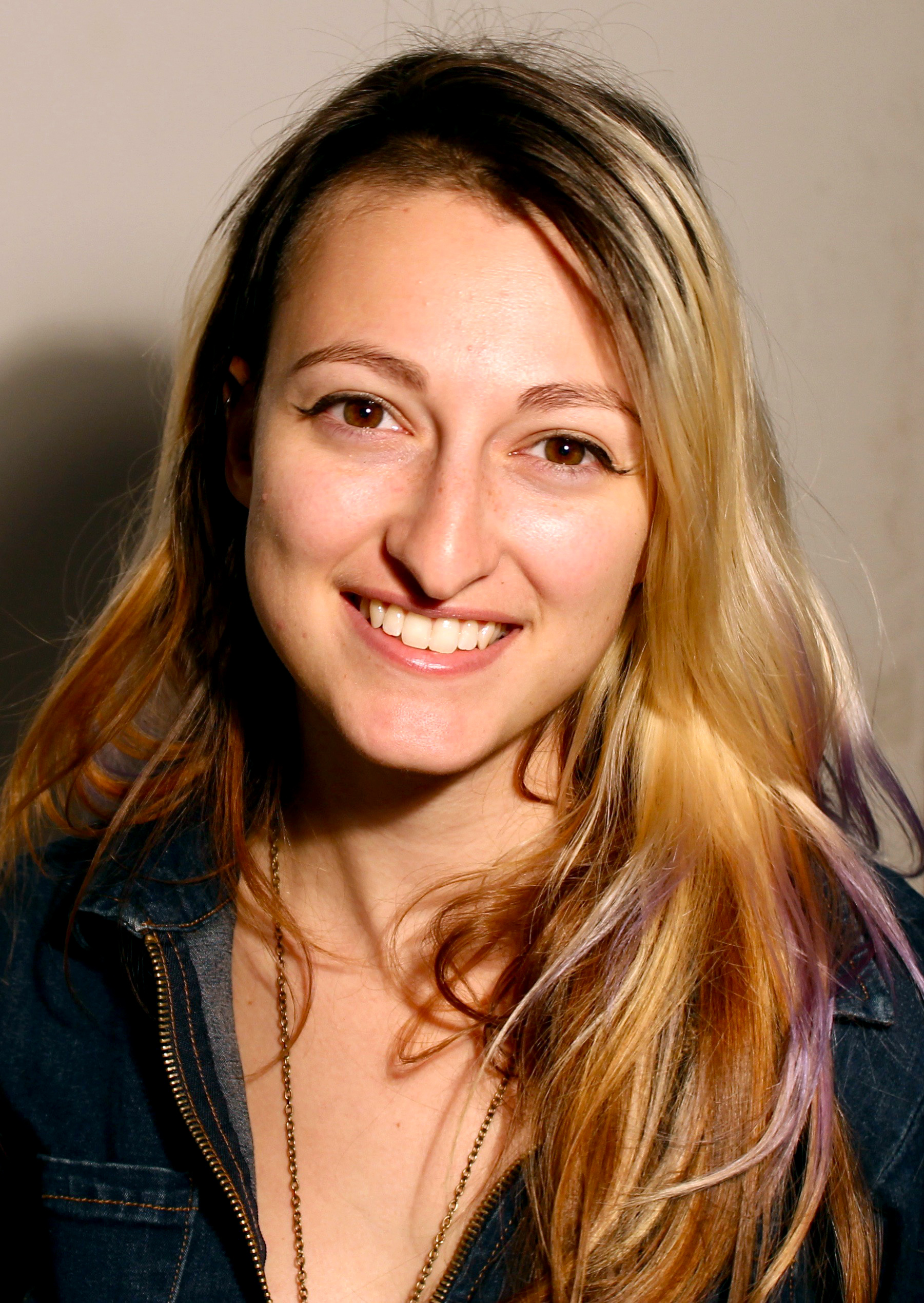How a sexual assault survivor is empowering fellow LGBTQ victims
A woman founded an online community for survivors to find resource and hope.

In the aftermath of the #MeToo and Time’s Up movements that saw hundreds of people from diverse backgrounds come forward with stories of sexual harassment and assault, some advocates are raising awareness for the often undiscussed issue of sexual violence against members of the LGBTQ community and more specifically, bisexual women.
Bisexual women face disproportionate rates of sexual assaults, according to the U.S. Centers for Disease Control and Prevention's National Intimate Partner and Sexual Violence Survey.
Nearly 40 percent of bisexual women are victims of sexual assault after four years of college, the CDC survey reports.
Dr. Glenda M. Russell, a psychologist in Colorado, told "GMA" that several factors contribute to the high rates of sexual assault that bisexual women experience on campuses and elsewhere.
"One of the things that adds resilience to people is having a sense of who you are being in a community where people share the same identity,” Russell said. “It seems to take bisexual women longer to get into those communities, because they face discrimination at large and within the LGBTQ community."
Lindsey, who wished to only be identified by her first name, is an LGBTQ sexual assault survivor who founded a Tumblr blog dedicated to helping others when she was in college. The blog, called the Bi Women Support Network, became among the first sexual violence recovery resources for bisexual women.
“That was a time period where I had just experienced my own trauma,” Lindsey told GMA. “I was feeling very isolated and in need of support. I saw my friends who were bisexual women and we all really needed a support group so that we didn’t feel alone.”
Lindsey took it upon herself to create this community after she said she found few resources for bisexual women who were survivors of sexual assault.
“It was in the moment of crisis,” she said, but added that creating the blog “was really helpful for me to channel that, channel those feelings into action, into doing something and helping other survivors into recovery, and their recovery was really helpful for my own healing.”

The Bi Women Support Network is a place where survivors can connect with counselors and other survivors about their issues, questions and thoughts.
The current director of the blog, Davy Ran, told GMA, “We get people writing to us about what bisexuality is to them, how they’re figuring out dating. They’ve been abused and are looking for resources, or are afraid of being abused and are looking for resources.”
The site has an anonymous board with 20 pages of questions and concerns from bisexual women about their different struggles as survivors.
In one, an anonymous user posted about her “traumaversary,” the anniversary of the day she said she was raped in middle school.
“I’m in college now and I feel like this shouldn’t have as big of an impact that it still does and I don’t know how to cope or get better,” the person wrote.One of the moderator’s thoughtful responses highlights the type of support survivors find in the community.
“Today doesn’t just mark your traumaversary, though, it also marks your getting through that trauma. You have been so strong and made it so far over the years,” the moderator replied. “Sometimes blaming ourselves for being traumatized is a way of trying to take control over the trauma. But realistically, there was nothing you did to deserve getting raped, and there is nothing you’ve done wrong in being hurt by it. Think of it this way: if your friend was in your situation, and still hurting over it, would you tell them they shouldn’t be feeling that way? You deserve the compassion, patience, and understanding that you would give your friend.”
Ran said that the site receives letters from bisexual women survivors around the world about how the blog has helped them.
“It’s very touching and very powerful,” she said. “People tell us, ‘You’ve been there for me through every trigger and every depressive state.’”
As a survivor of sexual assault, Lindsey said she loves seeing how survivors offer each other hope.
“I think the most important thing about finding a community as a survivor is that this person went through something horrible and they’re OK,” she said. “They’re still alive and if they can do it, I can do it too.”
What LGBTQ survivors want to see on college campuses
Lindsey stressed the importance of colleges establishing campus resources for survivors of sexual assault that are inclusive of the LGBTQ community.
This includes establishing gender-neutral restrooms on campuses, hiring counselors who specialize in LGBTQ issues and hiring counselors who are LGBTQ themselves.
“For me personally, I never really felt comfortable talking to a therapist until I met another queer woman who understood where I was coming from in my life,” Lindsey said.
Ran also emphasized the importance of having LGBTQ resource centers on college campuses. She said that these resource centers should have counselors trained to understand intersectionality of identities and transgender identities, and that they should help students access hotlines and any health care they might need.

One of the biggest takeaways that colleges can incorporate into their campus life to make it more inclusive is to make the reporting process as safe as possible.
“We have to bring bisexuality out of this invisible place in the overall community and the LGBTQ community,” Russell explained. “When things are secret, they almost inevitably take on this quality of being unacceptable.” She said that this can include establishing forums both on and off college campuses to talk about assault against groups of women not normally focused on.
Lindsey said if she could share one message with other survivors it would be: “You are not alone. It was not your fault, and you are going to be OK.”
“Those are all very simple things that ultimately take time to grapple with as a survivor,” she added. “But just know that while this horrible thing happened to you, it won’t destroy you.”




